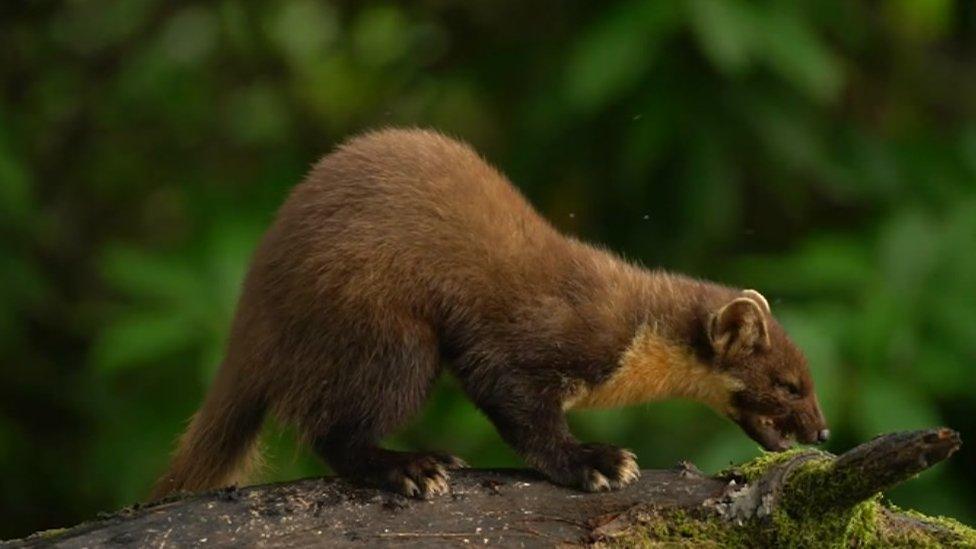Forest of Dean: Another successful breeding year for pine martens
- Published
Pine marten kits born in the Forest of Dean
Pine marten kits have been caught on camera after a third successful breeding year in the Forest of Dean.
An initiative led by Gloucestershire Wildlife Trust (GWT) saw 35 of the cat-sized mammals released into the forest between 2019 and 2021.
There have been successful litters every year, and ecologists think the population is now approaching 60.
The charity has now set its sights on improving habitat connectivity to help all wildlife thrive.
'Happy and settled'
Jamie Kingscott, pine marten manager at GWT, said the latest kits were "a nod to the fact these martens are obviously happy and well settled in this area".
Pine martens are from the same family as otters and weasels, and were once common across the UK.
But pressures such as deforestation and hunting pushed them into the remotest parts of the British Isles, and at one point they were only to be found in the highlands of Scotland.
Efforts to reintroduce them have been met with widespread support, not least because of the positive impact they can have on local ecosystems.
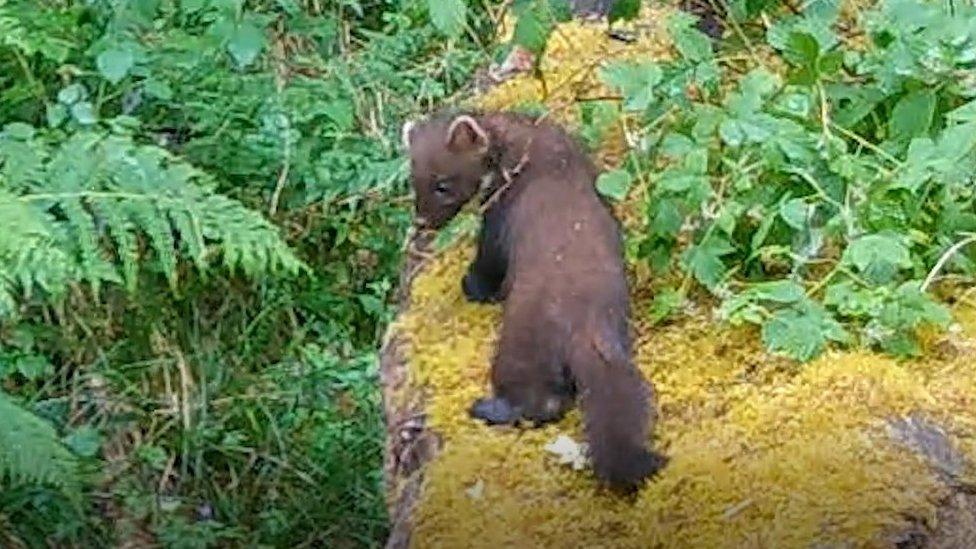
A pine marten kit caught on a camera trap
Speaking to BBC West, Mr Kingscott explained the broad diet of the pine marten, which includes small mammals, insects, eggs and fruit, has a "rebalancing effect" on their environment.
"They generally eat what is most abundant because it is easiest, and so they reduce its population and allow other species to crop up again," he said.
Pine martens also prey on grey squirrels, and many conservations hope they will help native red-squirrels become re-established further south.
'Concern from gamekeepers'
The trust has worked extensively with land owners, who might have been reluctant to see the return of the pine marten.
"There was some concern from gamekeepers and the shooting industry, but we continue to work with them to allay those concerns," Mr Kingscott said.
"We gave them examples in Scotland and Ireland of shooting estates doing perfectly well alongside pine martens."
He added: "If these birds are protected from predators that are already here, stoats and foxes and things like that, they are protected from pine martens too, so they pose no extra threat."
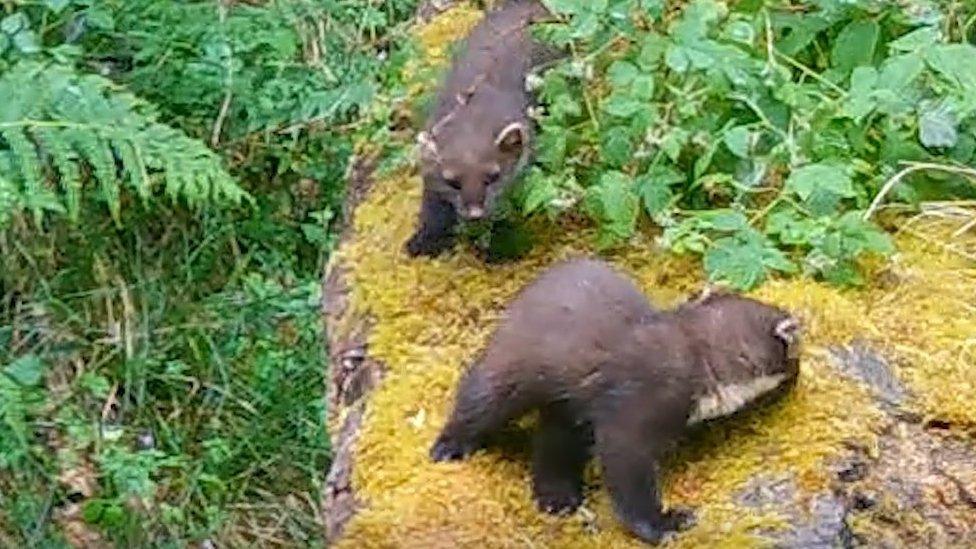
Pine martens typically have two to three kits a year
Going forward, the biggest concern for the pine martens' future is lack of joined up habitat.
Mr Kingscott said: "You can give a species legal protection and they will then start to recover naturally but they will only expand as far as the habitat allows.
"There might be patches of viable habitat elsewhere, but nowadays in Britain those patches are few and far between."
'Working on connectivity'
But he sees hope for the future.
The trust is one of several organisations working on the Severn Treescapes project, which is a significant tree planting effort to link the Wye Valley with the Wyre Forest in the midlands.
When complete, it will form "a wooded landscape at a scale never seen in the region before," those involved say.
"If you name a conservation organisation, the vast majority are working on connectivity," Mr Kingscott said.

Follow BBC West on Facebook, external, Twitter, external and Instagram., external Send your story ideas to: bristol@bbc.co.uk, external
Related topics
- Published11 January 2023
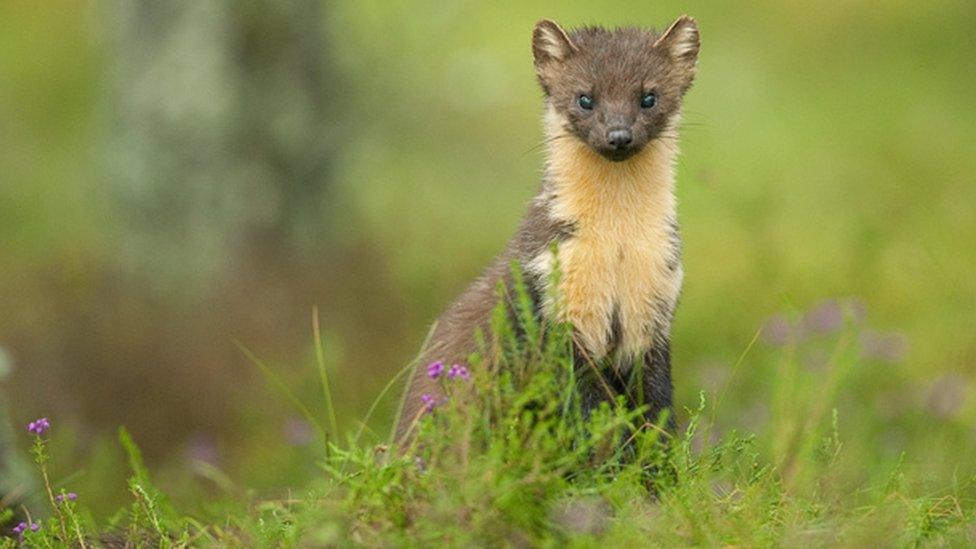
- Published25 November 2022
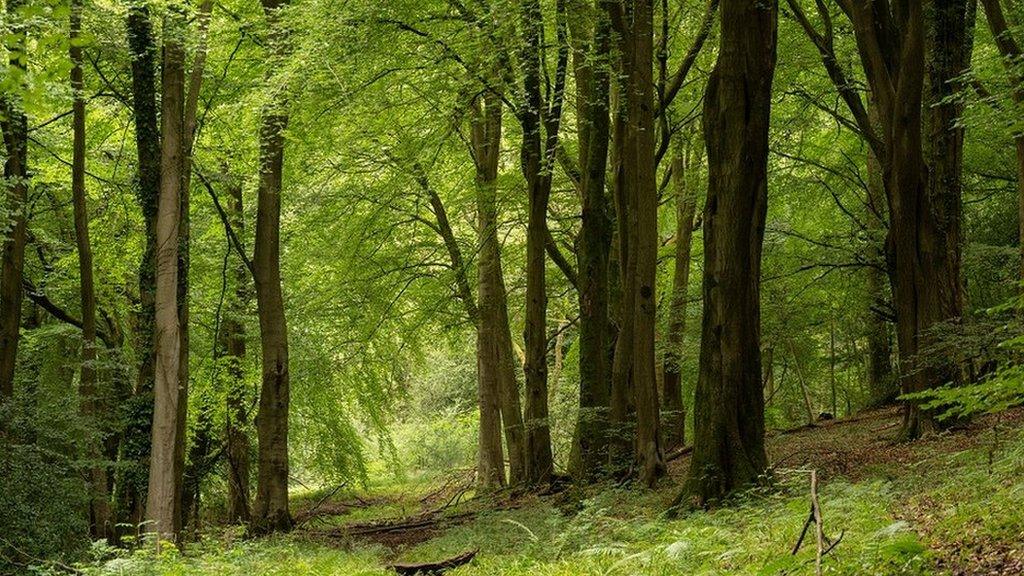
- Published1 October 2019
